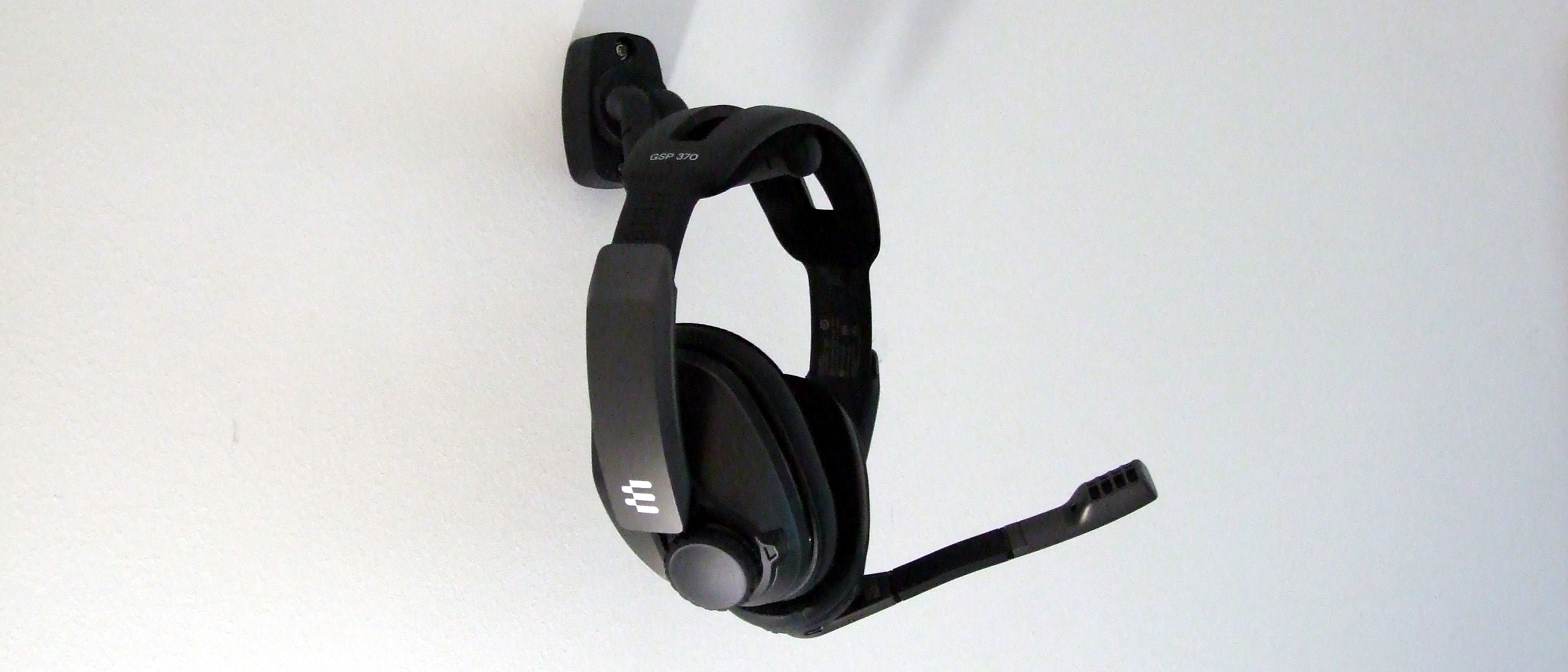TechRadar Verdict
The EPOS | Sennheiser GSP 370 headset supplies you with everything you could want when it comes to gaming audio and battery life, but an awkward form factor, dubious durability and lofty price point may put first-time buyers off.
Pros
- +
Top-notch sound
- +
Best-in-class battery life
- +
Long-lasting comfort
Cons
- -
Sub-par mic quality
- -
Lacks chat/game balancer
- -
Pricer than its market peers
Why you can trust TechRadar
Two-minute review
The EPOS | Sennheiser GSP 370 headset treads the line between quality and budget. Coming in at an RRP of $200 (£179/ AU$350), the accessory fits in the middle of the market, nudging the top-end of what most people would consider entry level.
For that price, you’d expect some best-in-class features – a headset that delivers on Sennheiser’s legacy with a crystal clear audio profile, and a durable and stylish design. But the EPOS | Sennheiser GSP 370, sadly, is not the best gaming headset you can pick up at this price-point.
The most impressive aspect of the headset is its battery: Sennheiser’s unlikely promise of a 100-hour charge is no exaggeration, and we haven’t had to charge the headset once in the entire 20-day period we’ve been testing it (despite averaging two-to-three hours a day playtime). That convenience, to some, may be worth the price of entry.
For those with keen ears listening out for teammates’ comms and in-game audio cues, the sound is sharp and clear and balanced and makes for a perfectly cromulent experience even with a flat profile. Sennheiser’s decades-long reign as king of the aural castle shines through with the GSP 370, especially when you’re playing games that rely on situational awareness. Noise-cancelling is achieved through the earcup design and allows for full, proper immersion in whatever fictional world you’ve booted up.
When it comes to sound, then, the EPOS | Sennheiser GSP 370 can give even the pricer, premium-range Sennheiser 670 a run for its money. It’s just a shame that it’s burdened with a lack of versatility, a sub-par mic build, a non-robust design to offset its glorious sound and battery life.
Design
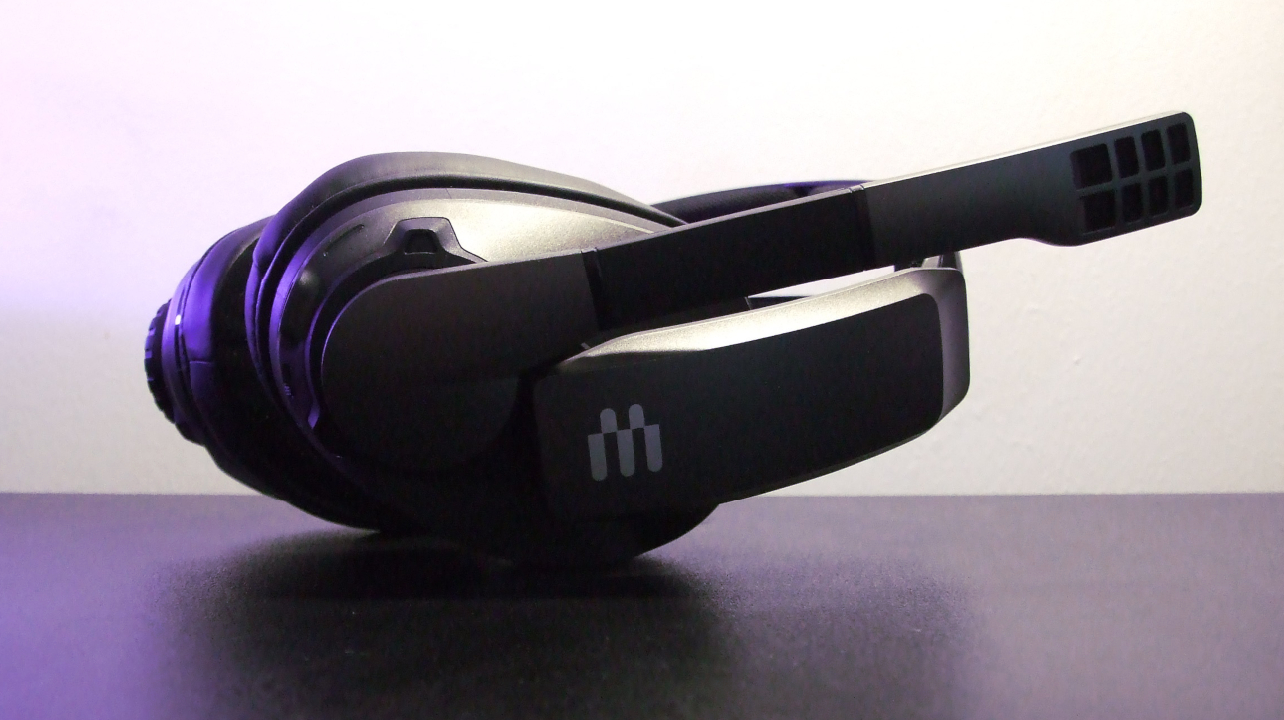
Let’s get one thing cleared up: this headset is not subtle. Though it’s not quite as bulky as its larger, more obnoxious sibling – the GSP 670 – the Sennheiser 370 is still a chunky headset. Even the most sausage-fingered gamers out there will struggle to miss the tactile, responsive volume wheel, though, and that’s a big plus for the headset’s traditional, smooth and matte black design.
A low-slung (and, honestly, quite cheap-feeling) connector attaches the earcups to the headband, and that sometimes squeaks a little if you’re mobile during a gaming session. The ball-and-socket joint that bridges the headband and earcups only allows for a few degrees’ worth of movement – if you’re an agitated, animated gamer, you may want to bear that in mind.
Sign up for breaking news, reviews, opinion, top tech deals, and more.
The upside, though, is comfort: both the headband and the earcups sit on an average-sized head without distress, and the width of the band allows even larger-headed players (like the reviewer) to enjoy lengthy sessions without discomfort. If you don’t mind faux leather, the earcups are perfectly functional, and the way they operate and noise-cancelling muffs, too, should be lauded.
For all its size and conspicuous design, though, the headset is light. This is a plus and a minus, really: yes, it’s great for comfort and lengthy sessions (and that really goes hand in hand with its stupendous battery life) but it also means it’s not the most durable headset out there. Sit on this by accident once or twice, and the earcups or the surprisingly fat and flexible mic will know about it.
Performance
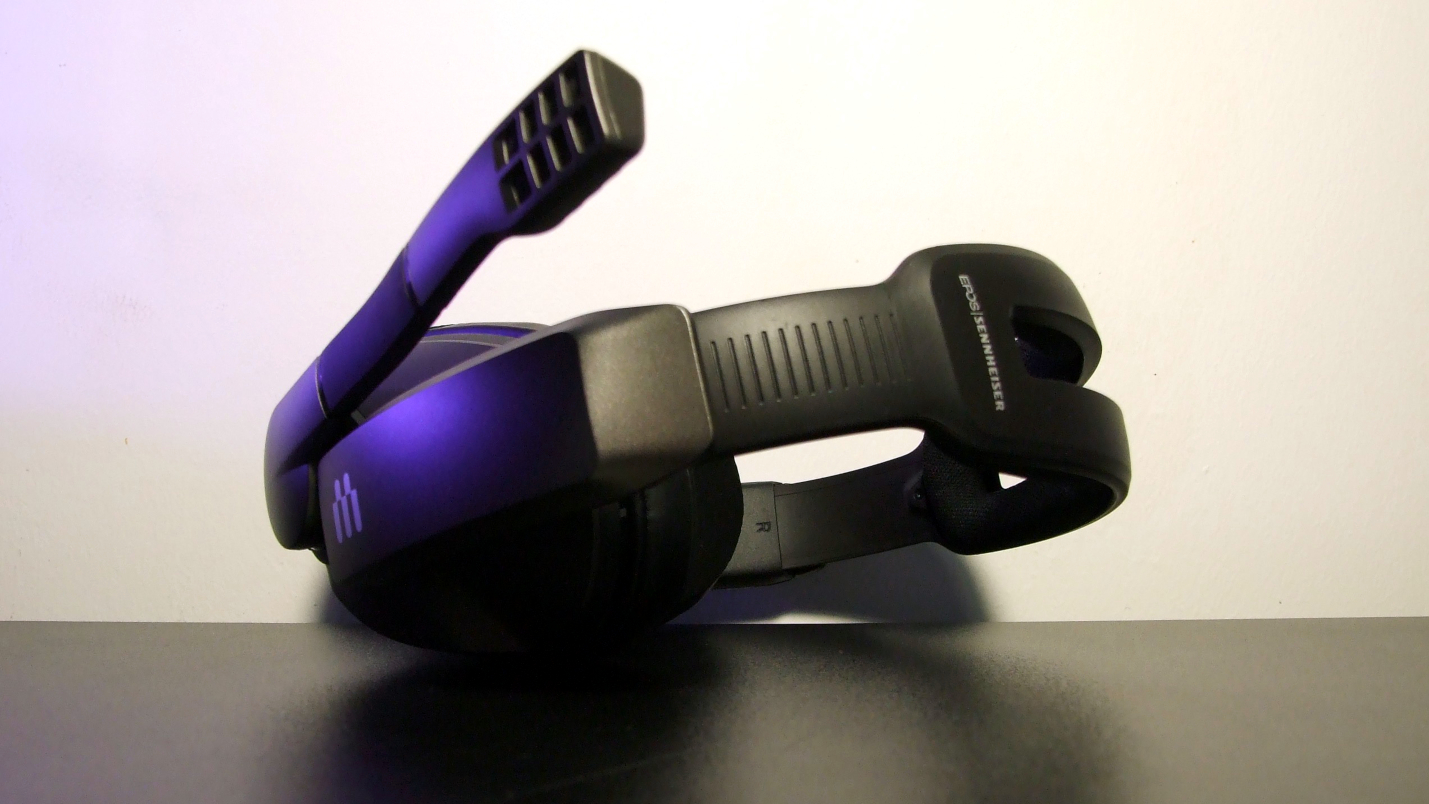
Thanks to Sennheiser’s unparalleled record when it comes to aural engineering, the headset is a dream to use in audio-rich games. First-person shooters and survival horror games highlight the GSP 370’s 20-20,000Hz frequency range the best, but the headset makes pretty much any PS4, PS5, or PC game shine out of the box.
There’s no dedicated balance function, though, so if you’re going to be using this to chat with mates as you mow down zombies in Call of Duty or yell at the ref in FIFA, you’re going to have to use an app or the PS4/PS5’s in-built functionality to tweak the balance. On PC, you have the option to mess with and EQ thanks to some proprietary software, but – frankly – it’s a cumbersome and unfriendly program (especially when it comes to the mic) and you’re best off avoiding it as much as possible.
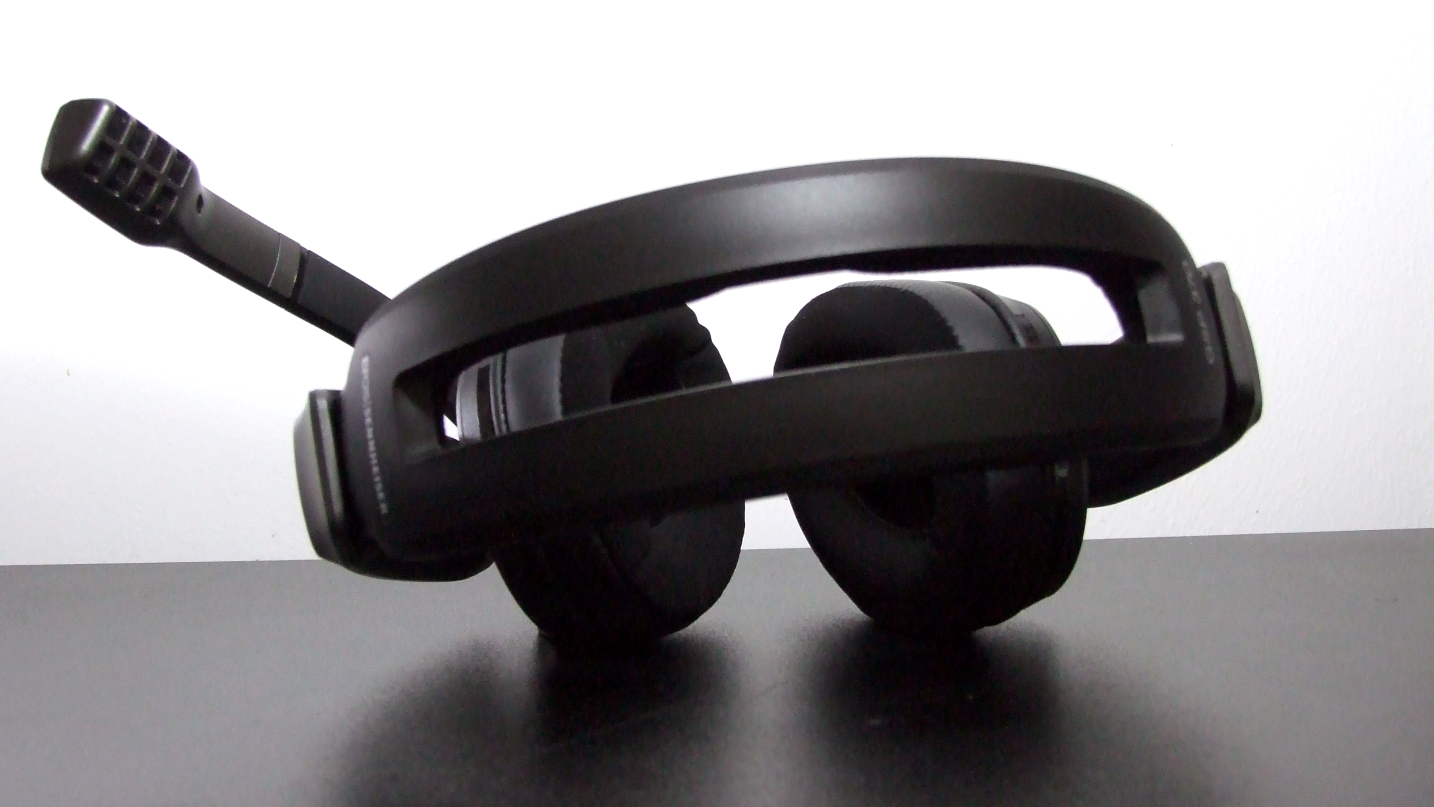
Speaking of the mic, that’s probably our biggest issue with the headset as a gaming accessory. Our teammates could hear the clack and click of a DualShock 4 through the mic when we played, and despite claims of being unidirectional and noise-cancelling, the mic picked up a lot of ambiance on voice channels. Add to that a fair amount of crackle coming through to other players in our fireteam, and you’ve got a concern – even if your voice does come through warm and clear when the mic fires on all cylinders.
You may also note a very occasional connectivity glitch when paired with either PS4 or PC: an always-on USB dongle deals with connectivity, and over between 60-70 hours of use, we noticed a momentary drop-out maybe four or five times. It’s not a game-changing glitch but it’s worth noting (especially if you’re thinking of playing ranked or competitive when using the headset).
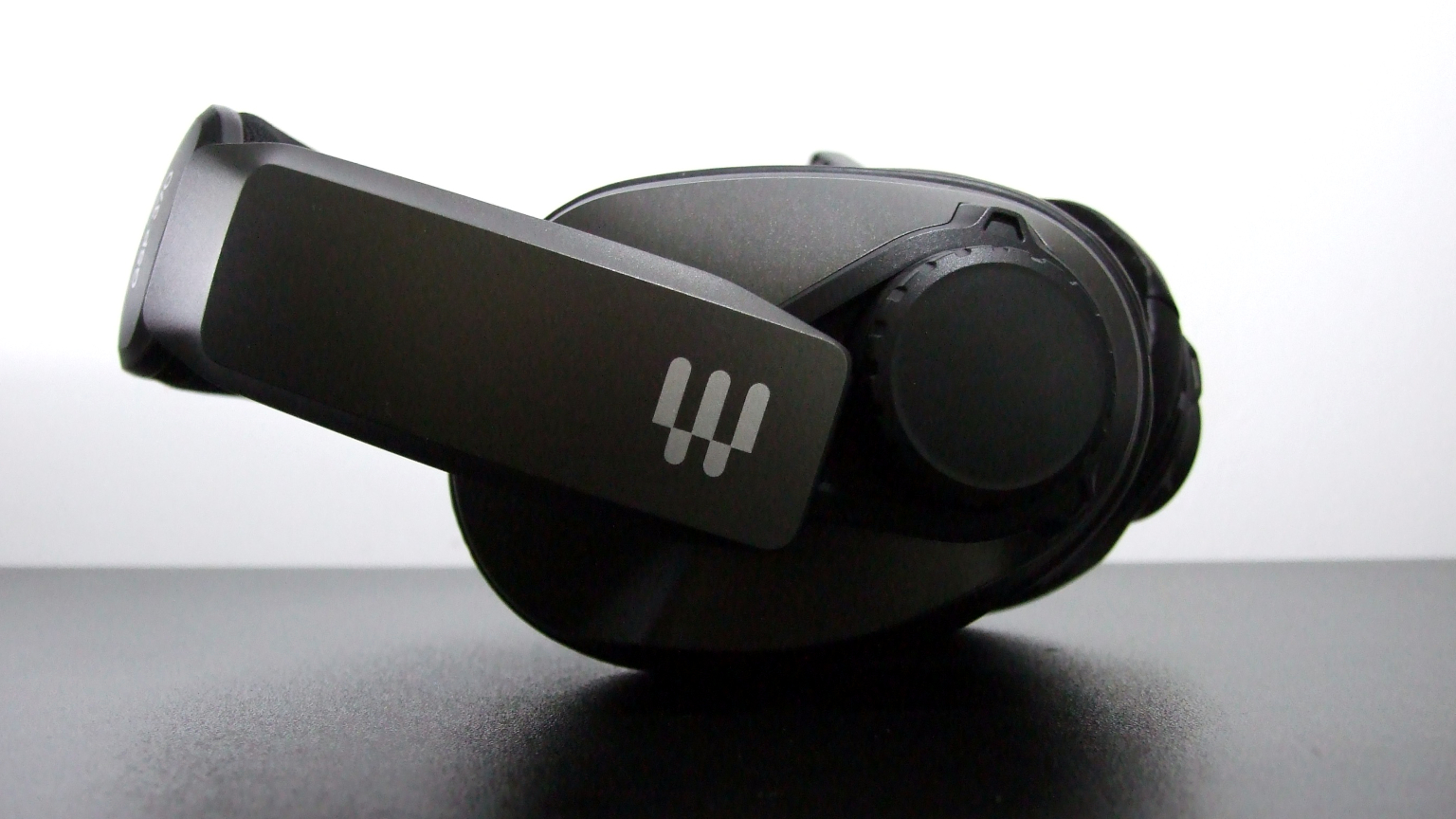
Buy it if...
You value high-quality sound
Honestly, we can’t overstate how nice Sennheiser products sound on a top-level basis.
You’re forgetful
You really can’t criticize the 100+ hours battery life, and frankly, we think Sennheiser must have employed some sort of dark magic to make it work.
You don’t mind spending a bit more
The Sennheiser 370 comes in a bit higher than both the SteelSeries Arctis 7P and the Corsair HS60 Haptic at $200/£170, but offers better sound quality. Choose whether you prefer value or performance.
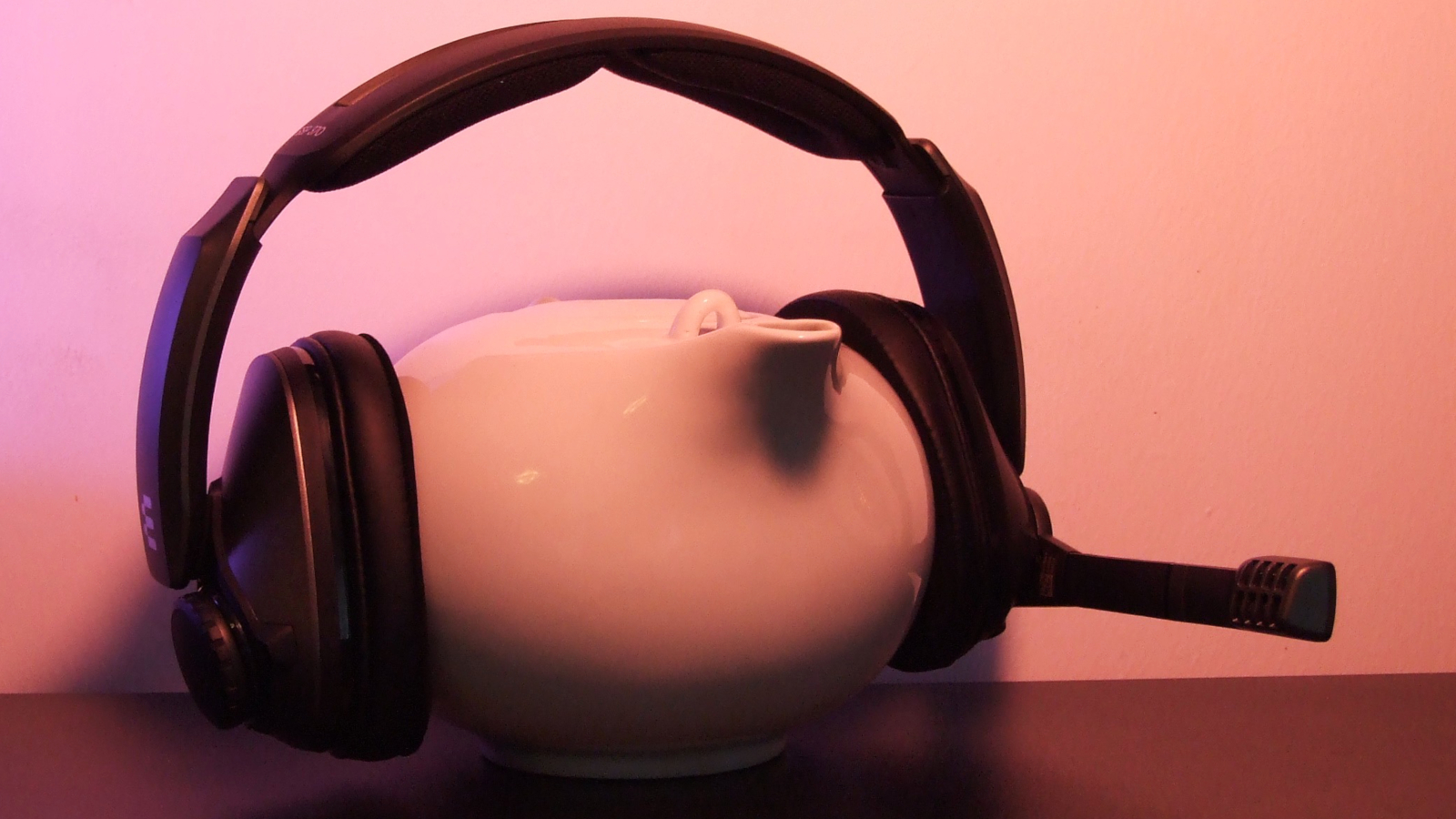
Don't buy it if...
You’re clumsy (or have young children)
Though we haven’t broken our review pair, over a month of heavy use they occasionally felt delicate and brittle. They won’t stand up to much punishment.
You want to fiddle with settings
As a console headset, it’s not very versatile. Voice/game balance options and different audio profiles are lacking.
